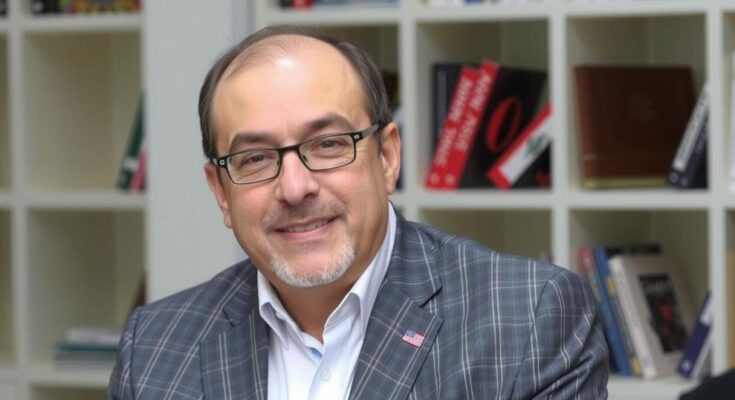Nawaf Salam, Lebanon’s new prime minister, aims to ‘rescue, reform and rebuild’ the country amid its dire financial crisis. He seeks cooperation across political divides, including outreach to Hezbollah, while emphasizing the importance of UN Resolution 1701 and advocating for a modern economy. His nomination offers hope for improved governance post-war, despite the inherent challenges of forming a new government due to political divisions.
Nawaf Salam, Lebanon’s newly appointed prime minister, has laid out a vision to “rescue, reform and rebuild” the nation as it faces severe challenges. In his inaugural address, Salam emphasized his intention to foster cooperation across the political landscape, notably reaching out to Hezbollah, which did not support his nomination but remains a significant political player. With backing from over half of Lebanon’s parliamentarians, Salam expressed a commitment to unifying the country and initiating what he termed a “new chapter.”
Salam, who previously presided over the International Court of Justice, conveyed his desire to enhance the authority of the Lebanese state throughout its territories while adhering to United Nations Resolution 1701 that calls for the withdrawal of Hezbollah from southern Lebanon. Furthermore, he pledged to advocate for the expulsion of Israeli forces from Lebanese territory, asserting that his administration would strive to create a robust and modern economy amid the country’s enduring financial crisis, which has persisted since 2019.
The political climate remains fraught with tension and division, often prolonging the formation of a new government. However, Salam’s nomination has sparked a glimmer of hope for a resolution following a tumultuous period marked by the recent war between Israel and Hezbollah, which resulted in significant casualties. The formation of a government remains contingent upon political negotiations, which historically can be time-consuming in Lebanon’s complex sectarian framework.
Lebanon finds itself in a particularly precarious situation, grappling with an unprecedented financial crisis and political instability exacerbated by internal schisms and external conflicts. The recent war with Israel has strained the already tenuous alliances within the country and has diminished the influence of Hezbollah, which has traditionally held substantial power. Nawaf Salam’s appointment as prime minister is regarded as a critical juncture in Lebanon’s attempts to stabilize its governance and economic framework under these challenging circumstances. Furthermore, Salam’s outreach efforts to unify Lebanon’s political factions underscore his understanding of the need for collaboration to advance his agenda of recovery and reform.
Nawaf Salam’s recent nomination as Lebanon’s prime minister signals a potential shift in the nation’s political landscape, characterized by a call for unity and comprehensive reform. His pledges to tackle economic challenges, enhance national sovereignty, and engage with various political entities, including Hezbollah, illustrate a pragmatic approach to governance. While the formation of a new government presents its challenges, Salam’s vision represents a hopeful outlook for Lebanon amidst its ongoing struggles and the aspirations for a more stable future.
Original Source: www.aljazeera.com




